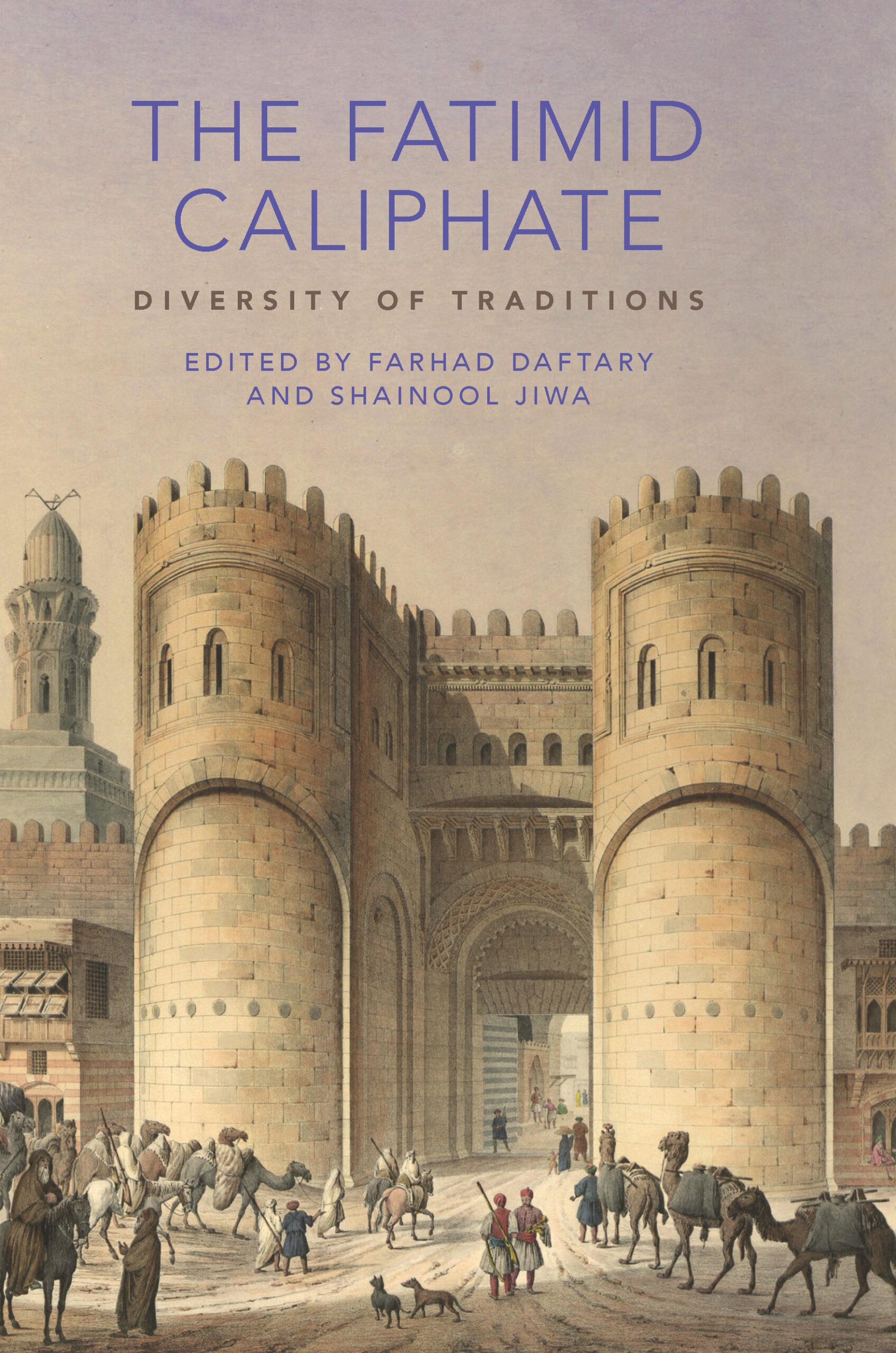The FatimidsMajor Muslim dynasty of Ismaili caliphs in North Africa (from 909) and later in Egypt (973–1171) More ruled much of the Mediterranean world for over two centuries. From the conquest of Ifriqīya in 909 to defeat at the hands of Saladin in 1171, the Fatimid caliphateThe Muslim political institution or state centred around the caliph, which came to an end, historically, in 1924 with the disappearance of the Ottoman Empire. governed a broad area stretching, at its peak, from the Red Sea in the East to the Atlantic Ocean in the West. Their leaders – the Ismaili Shiʿi Imam-caliphs – were notable for largely pursuing a policy of tolerance towards the various religious and ethnic communities of their realm, and they embraced diverse approaches to administering a vast empire. Such methods of negotiating government and diversity created a lasting pluralistic legacy.
The present volume, edited by Farhad Daftary and Shainool Jiwa, brings together original contributions from a number of leading authorities in the field. Based on analyses of primary sources, the chapters shed fresh light on the impact of Fatimid rule. The book presents little-explored aspects of state-society relations such as the Fatimid model of the vizierate, Sunni legal responses to Fatimid traditions, and the role of women in prayer. Highlighting the distinctive nature of the Fatimid empire and its legacy, this book will be of special interest to researchers in medieval Islamic history and thought.
Notes on the Contributors
Note on Transliteration and Abbreviations
Introduction
Farhad Daftary and Shainool Jiwa
1. The Early Ismaili Imamate: Background to the Establishment of the Fatimid Caliphate
Farhad Daftary
2. The Baghdad Manifesto (402/1011): A Re-Examination of Fatimid-Abbasid Rivalry
Shainool Jiwa
3. Was the Fatimid Amīr(pl. umarāʾ) Arabic lit. a prince, a commander, or a leader. In early Muslim history, the word amīr referred to an army commander. During the Umayyad and Abbasid periods, the… al-Juyūsh in fact a Wazīr?
Paul E. Walker
4. ‘Leading from the Middle’: Qāḍī al-Nuʿmān on Female Prayer Leadership
Simonetta Calderini
5. Al-Ṭurṭūshī and the Fatimids
Maribel Fierro
6. Transmitting Sunni Learning in Fatimid Egypt: The Female Voices
Delia Cortese
7. The Fatimid Legacy and the Foundation of the Modern Nizārī Imamate
Daniel Beben
Bibliography
Index
Farhad Daftary is Co-Director of The Institute of Ismaili Studies, London, and Head of its Department of Academic Research and Publications. An authority on both Shiʿi and Ismaili studies, he has lectured and published widely, with more than 200 articles, encyclopaedia entries, edited books and acclaimed monographs. Most recent of these are: Ismaili History and Intellectual Traditions (2018), Fifty Years in the East: The Memoirs of Wladimir Ivanow (2015) and The Study of Shiʿi Islam (2014). Dr Daftary’s books have been translated into Arabic, Persian, Turkish, Urdu, Gujarati, Chinese, Indonesian and numerous European languages.
Shainool Jiwa is a senior faculty member at The Institute of Ismaili Studies, London. As a specialist on the Fatimids, she has written and lectured extensively on medieval Islamic history and has edited and translated key medieval Arabic texts relating to Fatimid history, including The Founder of Cairo (2013) and Towards a Shiʿi Mediterranean Empire (2009). Dr Jiwa is also the author of The Fatimids (2018).

